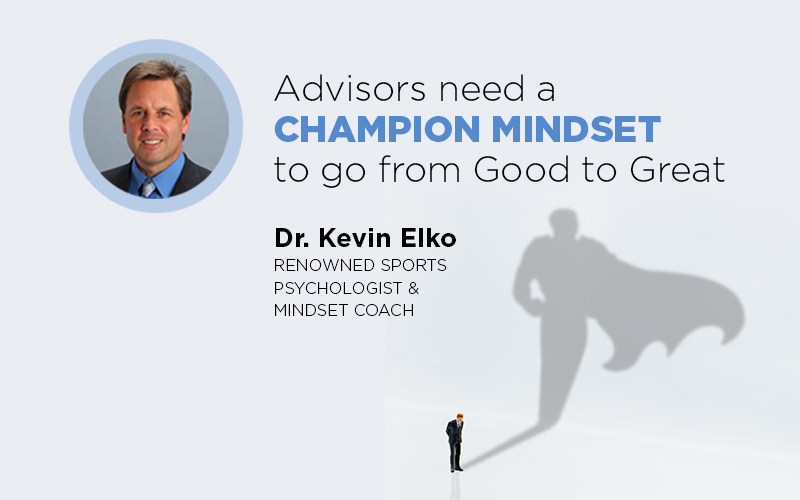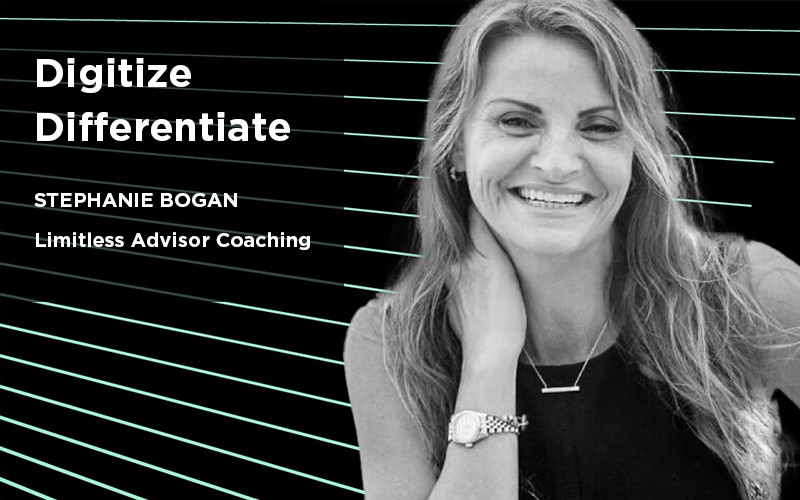When you think of highly successful individuals, elite athletes often come to mind. For one, famed boxer Muhammad Ali will always be known as “the Greatest.” In recent years, several athletes have been labeled as GOATs (Greatest Of All Time), including quarterback Tom Brady, gymnast Simone Biles, NBA star Michael Jordan and tennis great Serena Williams.
Then there are the GOATs of the coaching world. Recently retired University of Alabama football coach Nick Saban—who won seven national championships during his career—is arguably the GOAT In the realm of college football.
GOATs operate with a champion mindset
Every industry has individuals who rise above the rest, including the financial services industry. Like elite athletes, our industry’s elite advisors tap into a formula that helps them ascend to the top. An integral component of that winning formula is operating with a champion mindset, whether they realize it or not.
During a recent episode of The Breakthrough Advisor Podcast, InsurMark Virtual CMO Jack Martin discussed this topic with renowned sports psychologist and mindset coach Dr. Kevin Elko. Dr. Elko has worked with coach Saban at Alabama, along with a number of other BCS National Champion Football teams. NFL teams also turn to Dr. Elko for guidance, including the Pittsburgh Steelers, Dallas Cowboys and Philadelphia Eagles, among others.
Over the years, Dr. Elko has done extensive research into the mental makeup of champions. This insight is something he shares with his elite athlete clients, as well as ambitious individuals in other industries, including financial advisors.
Inspiration is for amateurs. Champions master the ability to navigate change.
What is a champion mindset? According to Dr. Elko, it starts with the desire and ability to change. “When we go to conferences, we love inspirational speakers because we think we’re going to be inspired to do something. But inspiration, it’s for amateurs. Change, motivation, grit and resiliency, all of that is a skill.”
Change takes hard work, instinct and repetition. “Unfortunately, people are wired for comfort and complaining and offended because they’ve practiced something so many times. It’s stored in the same place brushing their teeth is stored. You have to get to a point where you realize, ‘I have to wire it by repetition.’ You have to think it and rethink it until you’re wired with it,” Dr. Elko says.
Alabama coach Nick Saban won seven national championships, so how did he do it? According to Dr. Elko, it started with establishing a standard that Saban and his team always met or exceeded, but it goes beyond that. The coach’s ability to innovate and change things up from season to season were difference makers in those championship seasons.
Changing things up has also been a critical strategy for the Philadelphia Eagles. Says Dr. Elko, “Nick Sirianni from the Eagles called me and said, ‘I want you to talk about the Fosbury flop.’ Everybody was doing the high jump a certain way and Fosbury changed it. He decided, I’m going to do it completely different even though it’s working, and he set a new standard.
“So, the great ones do the Fosbury flop. ‘We were doing it this way, but now we’re going to do it that way.’ And as you talk about leaders and change, they’re not the ones dealing with change. They’re the ones who are using their instincts to set the change.”
Successful leaders have ‘Transformational IQ’
… also referred to as transformational intelligence or a transformation mindset. We’ve heard about emotional IQ but what is transformational IQ?
“Emotional intelligence came from Daniel Goldman because the original IQ (intelligence quotient) only correlated with the ability to do math, but not success, not happiness, not grit, not resiliency, just your ability to do math. Goldman pushed this idea that social or emotional intelligence, your ability to talk, listen, connect and think was more important. Transformational IQ is something very different. It’s your ability to handle change,” Dr. Elko says.
According to Nick Jankel, an associate faculty member at Duke Corporate Education, “A transformation mindset embraces and owns change, rather than trying to ignore, repress or deny it. Leaders can develop two mental modes—‘Contol & Protect’ and ‘Create and Connect’—and learn to switch fluidly and flexibly between them by managing their emotional and bodily state.”
In the current volatile, uncertain, complex and ambiguous world we live in, many once successful leaders (and this includes some legendary coaches) get trapped in what Jankel calls a “legacy mindset.” They rely on the knowledge, skills and behavior that delivered success in the past, choosing to ignore, repress or deny change.
As someone who has a finger on the pulse of collegiate athletics, Dr. Elko has seen what happens to coaches who can’t adapt and change.
As he explains, “The phrase is, ‘The future is not what it used to be.’ The world is changing so fast. And I’m guessing that change eventually caught Mike Krzyzewski at Duke because he left the industry. It caught Jay Wright at Villanova. He left the industry. It got Roy Williams in North Carolina. He left the industry with NIL and different things. Well, finally, it got Nick Saban.”
How can advisors tap into a champion mindset and go from good to great?
During the podcast, Martin made an interesting point about the hard-wired resistance to change that holds many advisors back in a world that has changed dramatically of late (and continues to change).
Says Martin, “Since caveman days we’ve been wired to protect ourselves, keep the status quo, don’t change because something bad can happen. Now fast forward to 2024. The world has transformed with Amazon, Netflix, DoorDash and how consumers look at and what they expect from advisors. The level of intelligence and ability of consumers to get information, that’s all changed. But in the back of our heads, we’re still afraid to step too far outside of the cave.”
So, what does Dr. Elko recommend for elite advisors who want to keep up with ongoing changes and continue evolving and growing–year after year?
Step 1: You have to declare it first.
“We’re wired to be comfortable. So, you have to first make a declaration. You don’t say, I’m going to learn how to change. You have to say, that’s my culture now. You have to say, “We are change.’ You have to declare that,” says Dr. Elko.
Step 2: You have to make it personal to go from good to great.
According to Dr. Elko, good is the equivalent of “I’ve got a vision.” Great is different, it’s when you make your business personal. As an example, he shared the story of Francis Perkins, former Secretary of Labor under President Franklin D. Roosevelt.
As he explains, “Francis was a nanny in New York City who saw a factory on fire and watched women fall to their deaths. She went to Roosevelt and said, I want to be your Secretary of Labor. He asked, ‘What’s your resume?” Francis said, ‘I’m a nanny.’ Roosevelt replied, ‘Do you understand, Francis, no woman has ever been in a presidential cabinet?’
“To which she replied, ‘Yes, but I’m going to be. I saw women burn to death.’ She went from a nanny to Secretary of Labor, cleaned everything up and wrote the Social Security Act. That was personal.”
Step 3: You have to Bluetooth your thoughts.
Say what? You know how Bluetooth earbuds pipe music, a radio station or a phone conversation into your ears? Dr. Elko says you need to get to a higher level of consciousness where you’re really listening to what you’re thinking and saying and actually hear it. And if you don’t like what you’re hearing, you need to change the channel, just like you would the radio.
Then you need to rewire your thoughts by thinking and speaking about it over and over. Says Dr. Elko, “You listen. You Bluetooth, and you change the thoughts. And then you repeat them over and over and over until you’re wired with them. Then you have a new tape. That’s where it has to go. And it’s going to keep changing and it’s going to change nonstop.”
Want to learn more about the champion mindset, transformational IQ and Bluetoothing?
Listen to the entire episode of Jack Martin and Dr. Kevin Elko’s podcast to take a deeper dive into these topics. And if you’re looking for an Advisor Development Organization to provide you with the technology, practice management, marketing resources and mentorship you need to go from good to great, we’d love to hear from you.
To schedule a discovery call, contact our office toll-free at (800) 752-0207 or connect with us online.
As an ADO – Advisor Development Organization™, InsurMark provides solutions to meet the ever-evolving needs of financial professionals with a mission to protect and enhance the financial security of every home in America.



